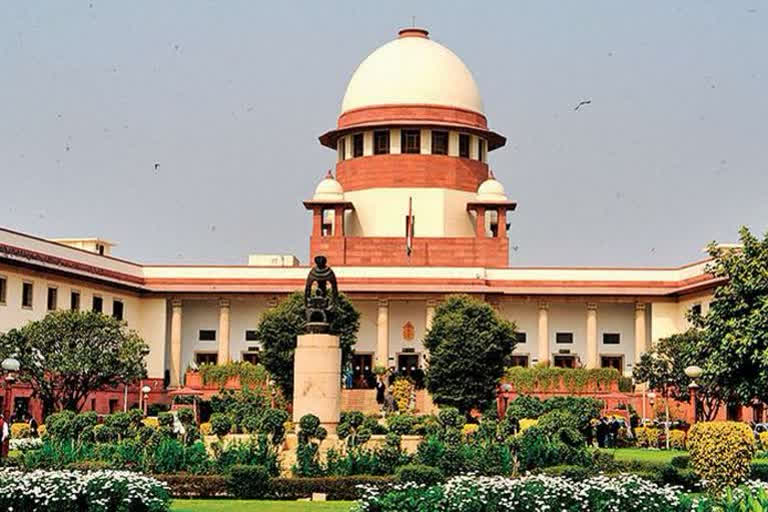New Delhi: In a case pertaining to inter-caste marriage, the Supreme Court has ruled that "consent of the family or the community or the clan is not necessary once the two adult individuals agree to enter into a wedlock and that their consent has to be piously given primacy".
The bench comprising of Justice Sanjay Kishan Kaul and Justice Hrishikesh Roy gave its order in a plea filed by Laxmibai Chandragi under Article 32 who was being threatened by her family for getting married to a man from UP. The Allahabad High Court had also not heard her plea.
Her parents had lodged a missing FIR after she flew from Karnataka to UP to get married to her partner and the police was not willing to close the case even after finding her whereabouts till she reported to the local police station in Karnataka.
She had told the police about the danger from her family if she travelled to Karnataka but police paid no heed and instead threatened of registering a false case against her husband which could also impact his job.
The court came down heavily on the police for this conduct and observed that if police could visit the residence of the couple, it could have recorded their statements as well rather than insisting to visit Karnataka.
READ: Judge's assault: SC rejects PIL, says nothing found in enquiry by Bihar Police
The court observed that young boys and girls choosing their life partners is the "way forward" where caste and community tension will reduce but in the meantime, the youngsters are facing threats from the families and courts have to come to their aid.
Right to marry comes under Article 21 and this right is not expected to succumb to the concept of "class honour" or "group thinking". The court quashed the FIR registered by the parents with the hope that parents will have a better sense to accept the marriage and establish social interaction with the daughter and son in law.
"That, in our view, is the only way forward. Under the grab of caste and community to alienate the child and the son-in-law will hardly be a desirable social exercise," read the order.
The bench noted that both the petitioners are well educated and the boy is an M.Tech from NIT, Tiruchirapalli and got a placement as an Assistant Professor in Jain College of Engineering, Belagavi, while his wife is an MA B.Ed and was a Lecturer in a College.
It noted that there was resistance from the parents of the girl, though the parents of the boy were willing for the matrimony of both the well-qualified petitioners who are majors and Hindu by religion.



